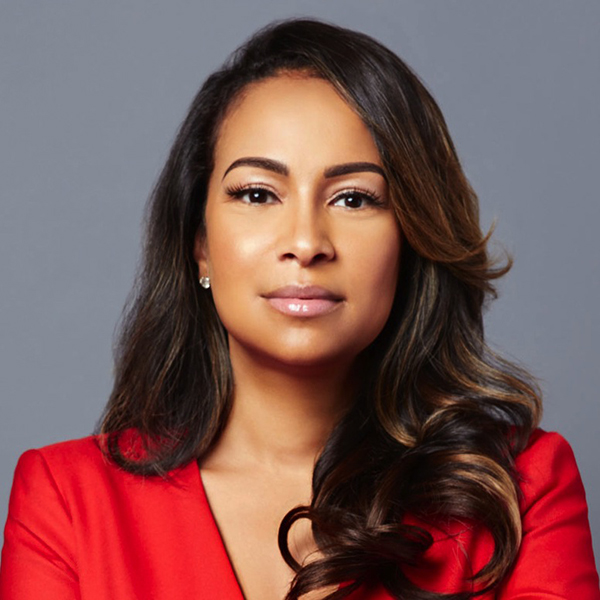By Alysha Conner, Contributing Writer
LOS ANGELES — The Recording Academy and a leading online civil rights nonprofit are joining forces to promote positive social changes in the music industry.
Valeisha Butterfield Jones, co-founder of the Women in Entertainment Empowerment Network, initiated the collaboration with Color of Change as she assumed her new role with the academy.
Jones was appointed as The Recording Academy’s first-ever chief diversity and inclusion officer in May.
The Recording Academy is a nonprofit organization that focuses on service, advocacy and recognition of the art and craft of music. It stages the annual Grammy Awards that honors achievement in the music industry.
“At the Recording Academy, we are entering a new chapter of transformational change,” Jones said. “It’s important that we take a bolder stance in the fight for racial justice and continue to commit to amplifying the voices of Black creators.
“We created the COVID-19 Relief Fund with our foundation MusiCares, which has helped thousands of people in our music community affected by the Coronavirus outbreak. We then started thinking of other ways that the Academy could use our voice and leverage our platform to drive change. Part of that strategy was investing in an organization like Color of Change.”
The Recording Academy will work with Color of Change to implement a series of ongoing initiatives to drive and influence equal opportunities for Black music creators and professionals.
They plan to create a Black music advisory group, host an industry-wide virtual diversity and inclusion summit, and establish a membership campaign focused on the Black music community.
In addition to announcing their partnership July 7, the Grammy’s parent organization made a $1 million donation towards its joint efforts with Color of Change.
“Beyond our commitment of $1 million, we are partnering with Color of Change for leadership and thought partnership on the diversity efforts we are championing at the Recording Academy, internally and externally,” Jones said.
“We’ll begin with an internal assessment of the Academy first, working from the inside out with Color of Change, helping us to better understand where we are as an organization and what the opportunities are for improvement.”
According to Forbes, the Recording Academy is currently about 53% diverse across all entities, including the Latin Recording Academy, the Latin Grammy Cultural Foundation, the Grammy Museum and Musicares.
But, the music organization has not distinguished what percentage of its employees identify as Black.
“We are also doubling down on our commitment to ensuring that our membership base is reflective of the broader music community and that the organization overall sets a positive example for the music industry,” Jones said.
Color of Change also will assist the Academy with implementing its previously announced “Inclusion Rider and Toolkit,” which the Academy intends to launch later this year.
Rashid Shabazz, chief marketing and storytelling officer at Color Of Change, is well known for his efforts in producing genuine portrayals of Black people in movies and on TV.
Shabazz will help oversee the Academy’s advocacy initiatives. Along with the rest of the Color of Change, he will help address the long-standing racial disparities within the Recording Academy and the broader music community.
“Music has the power to translate, reach people and fuel social progress and change,” Shabazz said. “So, we’re hoping given the platform of The Recording Academy and the artists who are members that we can utilize our resources and tools to make a difference.”
“Black people have always been essential to the heart of this country. Particularly through the ways in which we contribute through our arts and culture. This opportunity allows us to ensure more powerful opportunities for Black people, creatives, and artists.”
Like the Academy for Motion Picture Arts and Sciences, which stages the Academy Awards every year, the Recording Academy has struggled with diversity at times.
Last January, music mogul Sean “P. Diddy” Combs called out the academy during music executive Clive Davis’ annual pre-Grammys gala.
“For most of us, this is all we got,” Combs said. “This is our only hope. Truth be told, hip-hop has never been respected by the Grammys. Black music has never been respected by the Grammys to the point that it should be.”
During Combs’s acceptance speech for the 2020 Industry Icon award, he demanded that the Grammys change its ways.
“This thing been going on, and it’s not just going on in music, it’s going on in film, it’s going on in sports, it’s going around the world,” Combs said.
“For years, we’ve allowed institutions that have never had our best interest at heart to judge us. And that stops right now. I’m officially starting the clock — y’all got 365 days to get this (expletive) together.”
Ladera Heights artist Tyler, the Creator, expressed mixed emotions with his Grammy win for Best Rap Album during his acceptance speech at the January ceremony.
“On one side, I’m very grateful that what I made could just be acknowledged in a world like this,” Tyler said. “But also it sucks that whenever we, and I mean guys that look like me, do anything that’s genre-bending they always put it in a rap or urban category. I don’t like that ‘urban’ word — it’s just a politically correct way to say the n-word to me.”
In June, The Academy changed the name of the “Urban Contemporary” award category to “Progressive R&B.”
The organization also changed its guidelines for the “Best New Artist” award by removing the restrictions that capped artists at a certain number of tracks from competing.
Despite the ongoing battle with the pandemic, the groups expect to continue implementing their social change efforts.
“We’re living in very unprecedented times, and while difficult, the Recording Academy has been given the unique opportunity to get back to the root of its main mission, which is to support and champion the many members of the music community,” Jones said.













